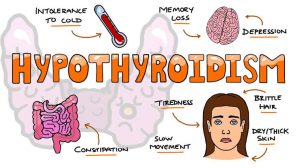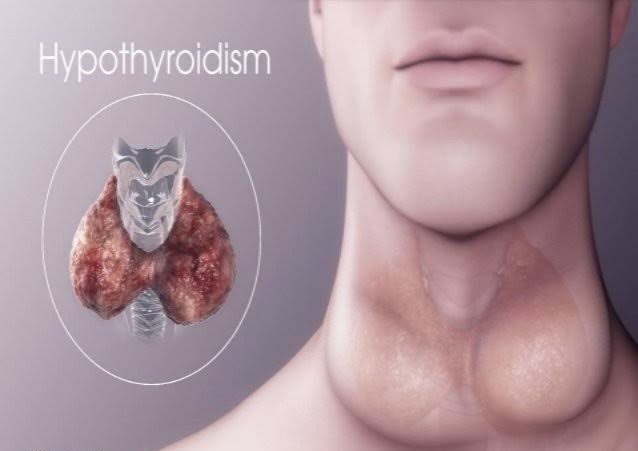As I woke up each morning, I felt like I was trapped in a never-ending nightmare. Fatigue wrapped itself around me like a shroud, suffocating me with its heavy weight. My mind was foggy, my body ached, and my motivation was nonexistent. The Sluggish Saboteur had taken over, silently sabotaging my life. I felt like I was losing myself, slipping away into a darkness that seemed impossible to escape.
But then, something inside me sparked. A small flame of determination flickered to life, refusing to be extinguished. I began to fight back, armed with knowledge and a newfound resolve. I learned to navigate the treacherous landscape of hypothyroidism, discovering hidden strengths and unexpected allies. With each small victory, my confidence grew, and The Sluggish Saboteur’s grip on my life began to loosen. I started to reclaim my energy, my passion, and my purpose.
As I emerged from the shadows, I realized that The Sluggish Saboteur had actually been a blessing in disguise. It had forced me to slow down, to listen to my body, and to discover a new appreciation for life. I had been given a second chance, a chance to live more intentionally, more authentically. And so, I rose up, stronger and wiser, ready to face whatever challenges lay ahead. The Sluggish Saboteur had tried to sabotage my life, but in the end, it had actually set me free.
What is Hypothyroidism?

Hypothyroidism is a medical condition in which the thyroid gland does not produce enough thyroid hormones, which are essential for various bodily functions. The thyroid gland is a small, butterfly-shaped gland in the neck that produces two main hormones: triiodothyronine (T3) and thyroxine (T4). These hormones play a crucial role in regulating:
1. Metabolism
2. Energy levels
3. Heart rate
4. Nervous system function
5. Muscle strength
6. Bone health
7. Hair, skin, and nail growth
Types
– Primary Hypothyroidism: The thyroid gland is stimulated properly, but it is unable to produce enough thyroid hormones. The problem lies with the thyroid gland itself. It is the most common type of hypothyroidism and is often caused by Hashimoto’s thyroiditis.
– Secondary Hypothyroidism: The pituitary gland does not stimulate the thyroid gland enough, resulting in low levels of thyroid hormones. The problem lies with the pituitary gland. It can be caused by pituitary tumors, radiation therapy, and medication side effects.
– Tertiary Hypothyroidism: The hypothalamus gland does not stimulate the pituitary gland enough, resulting in low levels of thyroid hormones. The problem lies with the hypothalamus gland. It can be caused by tumors, radiation therapy, and medication side effects.
The pathophysiology of hypothyroidism involves:
– Decreased thyroid hormone production (T3 and T4)
– Increased pituitary gland’s TSH production to stimulate the thyroid gland
– Disrupted feedback loop
– Decreased cellular metabolism and energy production
– Hormonal imbalance and inflammation
– Autoimmune response (in autoimmune hypothyroidism)
– Oxidative stress
This leads to symptoms like fatigue, weight gain, cold intolerance, and hair loss.
Causes
– Autoimmune disease: The most common cause of hypothyroidism is Hashimoto’s disease, an autoimmune disease that attacks the thyroid gland and affects its ability to make hormones.
– Thyroid surgery: Surgery involving the removal of the thyroid gland can lower the gland’s ability to make hormones or stop it completely.
– Radiation therapy: Radiation used to treat cancers of the head and neck can affect the thyroid gland and lead to hypothyroidism.
– Thyroiditis: Thyroiditis is the inflammation of the thyroid gland, which may be due to an infection, an autoimmune disorder or another medical condition affecting the thyroid.
– Medicines: Certain medicines, such as lithium, may lead to hypothyroidism.
– Problems present at birth: Some babies are born with a thyroid gland that doesn’t work correctly, while others are born with no thyroid gland.
– Pituitary disorder: A noncancerous tumor of the pituitary gland can cause the failure of the pituitary gland to make enough thyroid-stimulating hormone (TSH).
– Pregnancy: Some people develop hypothyroidism during or after pregnancy.
– Iodine deficiency: The thyroid gland needs iodine to make thyroid hormones, so a lack of iodine can lead to hypothyroidism.
Signs and Symptoms
– Tiredness
– Sensitivity to cold
– Constipation
– Dry skin
– Weight gain
– Puffy face
– Hoarse voice
– Coarse hair and skin
– Muscle weakness
– Muscle aches, tenderness, and stiffness
– Irregular or heavier menstrual cycles
– Hair thinning
– Slowed heart rate
– Depression
– Memory problems
– Jaundice in infants
– Feeding problems in infants
– Poor growth in infants and children
– Poor weight gain in infants and children
– Dry skin in infants and children
– Delayed development of permanent teeth in children and teens
– Delayed puberty in children and teens
– Poor mental development in children and teens
Prevention
1. Iodine intake: Ensure adequate iodine consumption through food or supplements, especially for pregnant women and children.
2. Healthy diet: Eat a balanced diet rich in selenium, zinc, and iron, which support thyroid function.
3. Vitamin D: Maintain sufficient vitamin D levels, as deficiency is associated with increased risk of hypothyroidism.
4. Avoid excessive soy: High soy consumption may interfere with thyroid function.
5. Limit radiation exposure: Avoid unnecessary radiation treatments and scans, especially for children and pregnant women.
6. Thyroid screening: Get regular thyroid function tests if you have a family history or risk factors.
7. Pregnancy care: Properly manage thyroid conditions during pregnancy to prevent complications.
8. Avoid smoking: Smoking may worsen hypothyroidism symptoms and increase the risk of cardiovascular disease.
9. Manage stress: Chronic stress can exacerbate hypothyroidism; engage in stress-reducing activities like yoga or meditation.
10. Regular check-ups: Regular health check-ups can help identify hypothyroidism early, allowing for timely treatment and management.
Remember, some risk factors, like family history and autoimmune disorders, cannot be prevented. However, being aware of your risk factors and taking proactive steps can help reduce your likelihood of developing hypothyroidism.
Complications
– Goiter: Swelling of the thyroid gland
– Heart problems: High cholesterol, cardiovascular disease, heart failure, abnormal heartbeats
– Pregnancy complications: Pre-eclampsia, anemia, birth defects, bleeding after birth
– Myxoedema coma: Confusion, hypothermia, drowsiness
– Nerve injury: Muscle weakness, breathing difficulties, carpal tunnel syndrome
– Infertility: Low sperm count, decreased libido, irregular menstruation
– Kidney problems: Chronic kidney disease, injury to the kidneys
– Neurological problems: Cognitive impairments, memory lapses, reduced motor function.
Diagnostic Investigation
– TSH test: Determines the level of thyroid-stimulating hormone (TSH) in the blood. High TSH levels can indicate hypothyroidism.
– T4 test: Measures the level of thyroxine (T4) in the blood. Low T4 levels can confirm hypothyroidism.
– T3 test: Measures the level of triiodothyronine (T3) in the blood. This test is often performed if T4 levels are normal, but hyperthyroidism is still suspected.
– Thyroid antibody tests: Checks for the presence of antibodies against the thyroid gland, which can indicate autoimmune thyroiditis (Hashimoto’s disease).
Imaging tests may also be ordered to visualize the thyroid gland and check for any nodules or inflammation, including :
– Ultrasound
– Thyroid scan
– Radioactive iodine uptake test
– Fine-needle aspiration biopsy (if a nodule is detected).
Treatment
Medications:
– Levothyroxine (T4): The most commonly prescribed medication, which replaces the T4 hormone.
– Liothyronine (T3): May be prescribed in addition to T4, especially for patients who don’t respond well to T4 alone.
– Combination T4/T3: Some medications combine both hormones.
Dosage:
– Initial dosage is usually low and gradually increased as needed.
– Dosage may need to be adjusted over time based on blood test results and symptom relief.
Lifestyle Changes:
– Regular exercise
– Healthy diet
– Stress management
– Avoiding soy and cruciferous vegetables (which can interfere with thyroid function)
Monitoring:
– Regular blood tests to check thyroid hormone levels (TSH, T4, T3)
– Adjusting medication dosage as needed
– Regular check-ups with your healthcare provider
Surgery:
– Rarely necessary, but may be required to remove a thyroid nodule or part of the thyroid gland.
Radioactive iodine treatment:
– May be used to treat hyperthyroidism (too much thyroid hormone production), but not hypothyroidism.
It’s important to work closely with your healthcare provider to find the right treatment plan and dosage to manage your hypothyroidism effectively.

